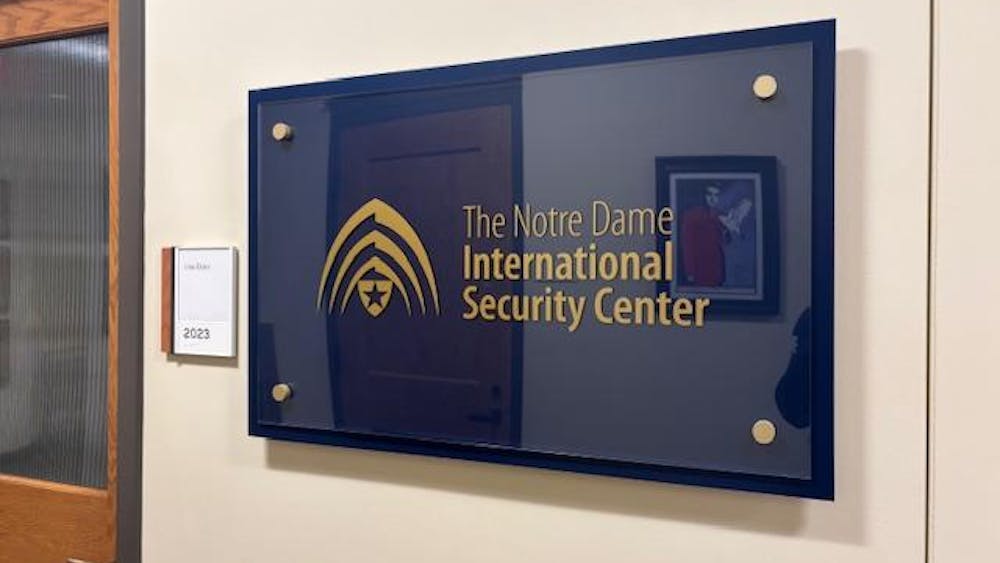Last Thursday, Belles in Economics invited Joshua Ammons to Saint Mary's College to present on the market process as nonviolent action and to discuss how economic markets can be used as a tool for peace and change. Ammons is a community engagement strategist at the Institute for Humane Studies at George Mason University. The event lasted for an hour and included a slideshow presentation titled "The Market Process as Nonviolent Action: Women's Contribution," followed by a Q&A session.
Ammons began by explaining the complexity of the market process and its role in global coordination.
"There's a lot that's going on," Ammons said. "It's almost miraculous the amount of coordination that happens across the entire world, across a very diverse group of people to create something very simple that we take for granted, and economists are able to spend a ton of time studying that."
He defined nonviolent action as "behavior that can result in change, either political, economic or social, through peaceful means."
He talked about how markets provide various ways to engage in nonviolent action and resistance, referencing examples such as virtual private networks in China.
"We believe in the free internet ... and it's also a very profitable business," Ammons said.
He noted that while motivation behind markets is not necessarily important, markets can be used for good, whether intentional or not.
"We wanted to show how these markets can provide pathways to peace and nonviolent resistance [to] help people," Ammons said.
Ammons referenced historical movements, such as the Polish Solidarity movement, in which commerce played a role in organizing resistance against the communist regime.
"A lot of the organizing of people that resisted the state of Poland were through people that were engaged in commerce," Ammons said.
The organizers of the event, senior Isabella Fischer and junior Libby Rogers, president and treasurer of Belles in Economics respectively, explained that they wanted to demonstrate the interdisciplinary nature of economics through the different events they host.
"We really try and highlight the interdisciplinary nature of economics. We brought in specifically Dr. Ammons because his research is super interesting," Fischer said. "I think it's really important right now."
She appreciated that the discussion extended beyond economic growth and wealth accumulation, focusing instead on economics as a means for social change.
"How can we use economics and economic theory to affect social change? It's crossing that line between economics," Fischer said.
Rogers, an economics and humanistic studies major, found the connection between economics and history particularly intriguing.
"I was really interested in how he connected [economics] with history," Rogers said, referencing the connection that Ammons made between revolutions and economic movements throughout time.
Freshman Katie Asbury, a Saint Mary's student who attended the event, was surprised by the depth of the discussion.
"I thought it was really interesting," Asbury said. "It was not what I expected. It was a lot of information condensed into 45 minutes."
She particularly valued the discussion on nonviolent social movements.
"I liked the idea that the impact of a nonviolent protest can really benefit life in a society," Asbury said.
The event showcased how economic markets can function as instruments for achieving peace and social change, fostering discussions about the transformative potential of commerce in divided societies.
"I don’t think it’s a cure-all for all the ills of society, but on the margin, as an economist would say, I think it can do a lot of good," Ammons said.










